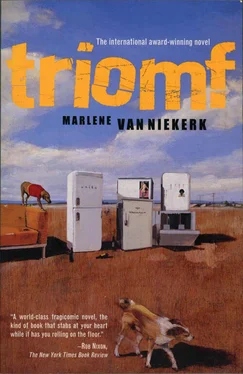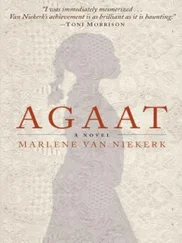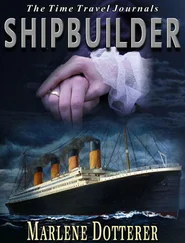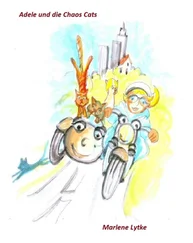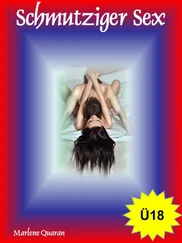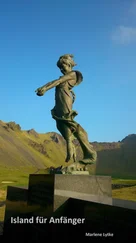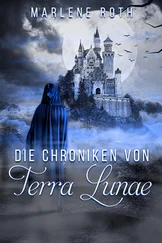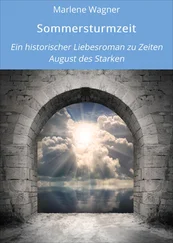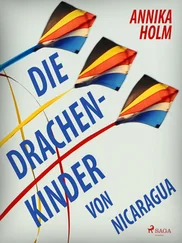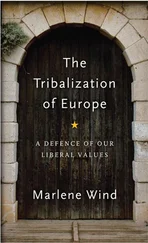He doesn’t even want to start drawing conclusions about that Dog-Day Wedding. Too many of them.
In Harare, he reads, the main telephone exchange is so full of cockroaches no one can get through any more. In India, Kentucky Fried Chicken’s going bankrupt ’cause the coolies’ chickens are so thin the Colonel’s secret chicken batter won’t take on those oriental budgies. Never mind the mudslide in the mining town of Harmony. This time he just hopes they’ll give that place its rightful name — No-Leg-to-Stand-On or Slip-’n-’Slide or something like that.
So, all in all, the Benades haven’t got too much to complain about. That’s just the way things go in this world. In-out, on-off, here-there, dirty-clean, dog-dog. Two of each kind in the ark. One continuous two-stroke activity. And so everyone buggers along, living it up, killing time. From the days of the Israelites already.
Take the piece the Jehovah woman was reading just now about the tabernacle’s candlestick. God knows, those desert wankers had lots of free time on their hands! That candlestick thing was so full of bowls and knobs and flowers, totally excessive if you remember a candlestick is actually meant for putting candles in, for light. Six arms, three on each side, and three bowls made like unto almonds on the one arm, plus a bud and a flower. And on the other arm three bowls, plus a bud and a flower. Etfuckencetera. And under each arm as well, and on the candlestick, four bowls made like unto almonds, with their knobs and their flowers. All of it one ‘beaten work’ of ‘pure gold’. And then there were still all those curtains and things, too. Just loops and tassels wherever you look. It’s as if the poor fuckers thought decorations and embroidery could save your soul.
He’ll put his head on a block that redemption is granted to the idle. To those who do completely fuck-all, with an open mind about the comings and the goings. But that’s high-powered stuff. You have to have your wits about you for that. Who’s he anyway to try going big on bugger-all? So he chooses the lesser of the two evils, and that boils down to shit-stirring. Not that his little bit of shit amounts to ‘beaten work’ of ‘pure gold’, but it’s better than nothing. Now and again it’s Quality Street shit and that’s the best he can hope for. For an oke like him, sitting in a place like Triomf, it’s quite good enough. ’Cause to tell the honest truth, Triomf doesn’t even have the redeeming features of a desert. It’s just a dump. Like the rest of Jo’burg, mind you.
But it feels to him like he’s the only one of them who actually clicks this little fact. One by one they trot like sheep after the fire in the cloud. And this fucken sheep-attitude comes a long way in his family.
Like that time all the wagons came through Fordsburg. That was in ’38. His mother still made little bonnets for herself and Molletjie just for the occasion. Genuine Voortrekker bonnets with big flaps in front. Tight around the neck.
That Solly-Jew who did the organising for them at the clothing factories also told them they were mothers of the nation. He told them they were made of the same steel as their descendants who’d trekked over the Drakensberg on bare feet. Clever fucken Jew, that. But of course he had his own Communist plans for them. He just used the regular story that they all knew. Everyone always has plans for them, some or other story. They’ve always been in some fucken person’s plan or story or horizon or background or adventure. Without ever wanting to be in it, or at least without him ever wanting to be in it.
Pop, for example, was completely into that ’38 story. But he was soft in the head even then. They recruited him in the yard at their house in Vrededorp. Made him buy a little waistcoat with a silly white scarf to put around his neck for when the wagons came by. And a hat with the brim turned up on one side. Old Mol still had to go and buy it from the coolies. Pop really fancied himself in those clothes. He spent hours posing in front of the mirror. After a while he even had chicken feathers in the hatband. But he, Treppie, wanted nothing to do with it, even though he was only ten. That was after Old Pop had beaten him to a pulp in the train that time and he didn’t speak to anyone for years on end. Soon afterwards, Old Pop hanged himself. Then he started talking again, but he still didn’t want to sing along when they sang ‘God of Jacob’ and ‘Afrikaners, children of the soil’, which they had to sing all the time in school in those days. Not his scene, that. If ever there was wallpaper, if ever you wanted interior decoration, that was it.
And there they walked down Fordsburg’s Main Street, cracking their whips! Whips with leather knots on the ends that echoed ‘ka-thack!’ among the houses. For crying in a bucket! And the Afrikaner bulls were shitting non-stop — Fordsburg’s Main Street was strewn with shit and the dogs were going berserk from all the strange smells and the commotion. One of those dogs got between the legs of the oxen. He was kicked to death on the spot. Not a good day for a dog. And no one even bothered to pick up the poor thing. He just lay there in the road. Everyone hypnotised by the wagons. High on the Great Trek.
The names of those wagons took the biscuit. Each one more ‘symbolic’ than the next. That was the day he learnt you can make any fucken thing you like ‘symbolic’, from a pisspot to a postbox. It just depends whether you’ve got enough power. Then you can even win an election with a symbolic pisspot. Or a hosepipe or a wheelbarrow or a monkey wrench. It’s all in the mind, anyway.
One wagon was called The Concentration-Camp Nurse. It had a tent pitched on top with its flap thrown open so you could see inside, and there, in the tent, sat the nurse, wearing a black dress buttoned up to the neck, her hair pulled into a tight bun. Her face was powdered completely white, with black rings painted under her eyes and rows of wrinkles drawn on her forehead. On her lap lay a child pretending to be sick unto death. He was made up all purple and yellow so he’d look ghastly and mortally ill. Next to them was an enamel basin for the fake water, and every now and again, when people looked into the tent, the nurse would dip a rag into that fake water and wipe that child acting half-dead on his powdered forehead. Except she couldn’t really wipe his forehead ’cause then she’d wipe off the make-up and the whole scene about the terrible suffering of women and children in the camps would go to glory. So she just dabbed at the air above the child’s forehead.
Now if that’s symbolic then it’s really very silly. That’s what he thought then, and that’s what he still thinks now. People mustn’t try pulling that kind of crap on him. About Jopie Fourie and Racheltjie de Beer and Johanna van der Merwe.
Johanna was also there, with her twenty-one assegai wounds, which you could count, one by one. Big red spots painted all over her body. All she needed next to those ‘wounds’ were some numbers, one to twenty-one in koki pen.
He remembers how that Johanna winked at Pop, with her twenty-one polka dots and all. She’d been placed on a bier, and she lay on her back, with her bonnet and her Voortrekker-dress lying under the wagon’s hood. The flap was left open so you could see her nicely. The heroine, resting at peace after the battle.
And then, just as Pop ducked under the wagon to smear some grease on his scarf — that was the big thing for the little boys that day, getting fake Voortrekker grease on their clothes — just as he did that, she winked and asked him if he didn’t want to take a ride to keep her company. It was so boring lying there on her back in state, under that canopy.
Pop told that story for years afterwards, over and over again. To this day he still tells it. He says he’ll never forget how he rode with Johanna and her assegai wounds in the wagon. He didn’t ask her what her real name was, but he rode along all the way to Braamfontein. When they saw people looking into the tent, Pop made as if he was a young Voortrekker grieving over his beloved, with his head on her chest. That was something he did with great pleasure, he said, ’cause she was ‘a beautiful woman in the prime of her life’. That’s how Pop always tells the story. And what a fluke shot it was that the kaffirs didn’t stab her in her lovely face. That’s also what Pop used to say.
Читать дальше
